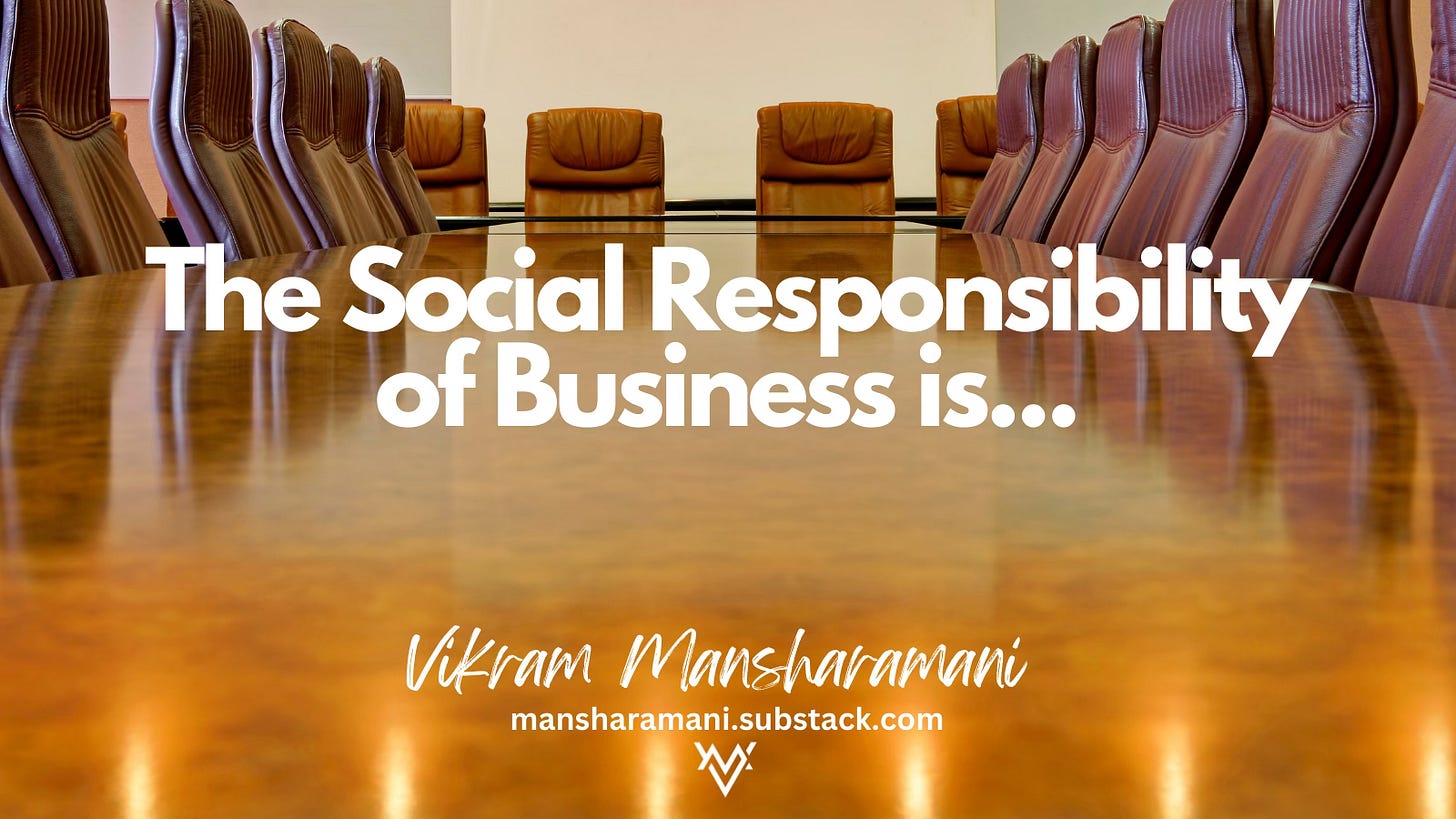The Social Responsibility of Business is...
Rethinking today's supposed tradeoff between shareholders and stakeholders
One of the real joys of being a global generalist is that I constantly interact with people from different backgrounds across varied industries and numerous geographies. In the past six months alone, I’ve spent time meeting, speaking, or advising companies and individuals in Australia, Hong Kong, Canada, The United States, Panama, Colombia, Brazil, and …
Keep reading with a 7-day free trial
Subscribe to Navigating Uncertainty to keep reading this post and get 7 days of free access to the full post archives.


